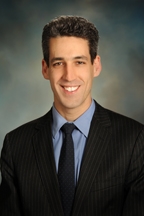
Last week, we wrote about a somewhat remarkable retraction, of a 15-year-old paper by a current Illinois senator who used to be a mathematician. At the time, we were a bit perplexed by the language of the notice, which the senator — who helpfully took our call — couldn’t answer, since he wasn’t involved in drafting the notice.
We’ve since heard back from the journal that retracted the paper, which explained that their phrase that “most results are false” meant the findings by state senator Daniel Biss were inaccurate — not fraudulent.
Here’s more explanation from a joint statement sent to us by Jan van Mill and Jerry Vaughan, the editors in chief of Topology and its Applications:
Upon receiving the initial complaint that the paper by Biss included many errors and was being cited in academic literature, we invited an expert in the area to evaluate the paper by Biss and the alleged complaints. Based on advice from our expert, we then contacted Biss with a list of twelve specific, documented errors and asked him to review the expert’s findings and to please comment further. We offered him the opportunity, if Biss felt it to be appropriate, to publish an addendum in Topology and its Applications. Biss responded with “Thank you for writing. I am no longer in mathematics and so don’t feel equipped to fully evaluate these claims. I certainly do not dispute them. If you would like to publish a retraction to that effect, that would seem to me to be an appropriate course of action.”
The editors clarified:
In accordance with the procedures for retraction notices for this journal, we then asked the Journal Manager for Topology and its Applications to once more contact Biss confirming that the paper would indeed be retracted and also send Biss a copy of the retraction notice that would be published and to offer any clarifications if he wanted to.
Whilst our retraction notice is really intended for theoretical mathematicians who work in the areas of the Biss paper, we, the Editors, would like to make it very clear that the words ‘most results are false’ in the notice do not in any way shape or form relate to fraudulence – the results published in the original paper are simply inaccurate and have now been retracted.
Like Retraction Watch? Consider making a tax-deductible contribution to support our growth. You can also follow us on Twitter, like us on Facebook, add us to your RSS reader, sign up on our homepage for an email every time there’s a new post, or subscribe to our daily digest. Click here to review our Comments Policy. For a sneak peek at what we’re working on, click here.
Seems to me that more than one party dropped the ball, starting with the author, next the handling editor and also the reviewers. The whole affair chips into the integrity of the review process, with all kinds of adverse ramifications. It is good that the system is somewhat self-regulating with watchdogs checking for errant work.
I’m not sure what the handling editor could have been expected to do differently.
If I read this correctly, the distinction is between statements that “wrong” by mistake and “wrong” by intent. In today’s politics, there are further distinctions, e.g., between “news” and “fake news” and between “facts” and “alternative facts.” Documenting “intent”–especially “mens rea”–is difficult. See: https://definitions.uslegal.com/c/criminal-intent/. “I don’t recall the details” is how lawyers put distance between themselves and events that might be construed as “incriminating.”
Noble confuses mathematicians with lawyers and politicians. Bliss is no longer a mathematician by trade, and it would be a surprise for any mathematician to be able to make a useful comment on a 15 year old paper. Bliss simply said the obvious; if errors were found in his paper that caused the results to be false then it should be retracted.
That’s the way it should work, seems to me.
For me—having had a reasonably long, and modestly extensive, experience of mathematics and mathematicians—it wouldn’t be a surprise at all; I have seen it happen multiple times (even for papers several times older than 15 years), from a number of different perspectives and in several reasonably distinct subfields.
Perhaps you are more easily surprised than I.